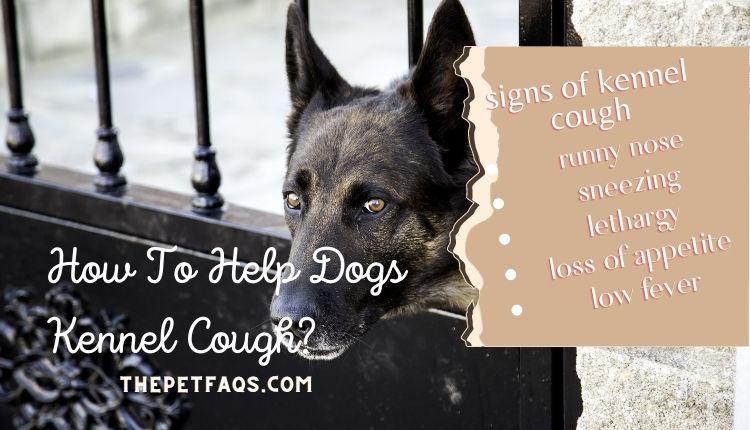Are Black Walnuts Poisonous To Dogs? Let’s Find Out The Truth
Are Black Walnuts Poisonous To Dogs? This is the question many dog owners ask when they see black walnuts on the floor. Let’s Find out the true fact about this nut.
The black walnut tree (Juglans nigra) is a large deciduous tree that can grow up to 30 feet tall. It has a sizeable walnut-like fruit that grows in clusters and is sometimes called a “black nut” or “juglone.” The leaves of the black walnut tree have been used medicinally for centuries, mainly as an astringent and expectorant, but also as a purgative. The wood of the black walnut is also used for furniture, tools, and cabinet building.

What is Black Walnut Poisoning?
Black walnut poisoning is a medical emergency when someone eats large quantities of black walnuts. Symptoms of black walnut poisoning include vomiting, diarrhea, and clay-colored stools. These symptoms may be followed by confusion, seizures, heart failure, and death. If you think of eating black walnuts, talk to your doctor first.
Are Black Walnuts Poisonous To Dogs? What are The Symptoms of Black Walnut Poisoning in Dogs:
If your dog ingests a large number of black walnuts, its stomach will start to bloat. This can cause the animal to feel very uncomfortable and may even lead to death if not treated quickly. If you suspect that your dog has eaten black walnuts, contact a veterinarian as soon as possible.
Symptoms of Black Walnut Poisoning in Humans:
The symptoms of black walnut poisoning vary depending on how many walnuts were eaten and how healthy the individual is. In general, black walnut poisoning can cause vomiting, diarrhea, fever, clay-colored stools (which may contain blood), confusion, seizures, heart failure, and death. If you are thinking of eating black walnuts and have any of these symptoms, be sure to get in touch with a doctor as soon as possible.
Causes of Black Walnut Poisoning in Dogs:
A few different factors can lead to black walnut poisoning in dogs. The most common cause of black walnut poisoning in dogs is when they eat large nuts. Other causes include giving the dog food containing black walnuts, eating any nut that was stored inside a black walnut, and introducing an unopened container of nutmeat (i.e., shelled or roasted) into the home with your dog.
Causes of Black Walnut Poisoning in Humans
There are a few different factors that can lead to black walnut poisoning in humans. The most common cause of black walnut poisoning is when they eat large quantities of nuts. Other causes include storing nut products near food preparation areas, eating any type of nut that was stored inside a black walnut, and introducing an unopened container of nutmeat (i.e., shelled or roasted) into the home.
Diagnosis of Black Walnut Poisoning in Dogs:
If your dog has eaten black walnuts and you are concerned about their health, the first thing you should do is contact a veterinarian. Your vet will perform a physical exam and may work to determine the amount of walnut that was consumed. If your dog has any other symptoms (such as vomiting, diarrhea, fever, confusion), the vet may also perform tests to rule out other causes of those symptoms.
Diagnosis of Black Walnut Poisoning in Humans:
If you think that your child has eaten black walnuts and they are experiencing any of the following symptoms, please contact a doctor immediately: vomiting, diarrhea, fever, lethargy (weakness), seizures, or coma. In addition, if you have any other information about this incident (i.e., where the walnuts were sourced), please also provide that information to the doctor.
Treatment of Black Walnut Poisoning in Dogs:
Suppose your dog has eaten black walnuts and displays any of the following symptoms. In that case, treatment may include vomiting, diarrhea, fever below 103 degrees F (39.4 degrees C), lack of appetite, dehydration, and seizure activity. If your dog is severely ill or they have ingested a large number of walnut products, it may require hospitalization.
Treatment for Black Walnut Poisoning in Humans:
If you think that you or your child has eaten black walnut products and are experiencing any of the following symptoms, please contact a doctor immediately: vomiting, diarrhea, fever below 103 degrees F (39.4 degrees C), lack of appetite, lethargy (weakness), seizures or coma. In addition, if you have any other information about this incident (i.e., where the walnuts were sourced), please also provide that information to the doctor.
Recovery of Black Walnut Poisoning in Dogs:
While most dogs will recover from black walnut poisoning fairly quickly, some may experience prolonged vomiting and diarrhea as well as dehydration. If your dog has ingested a large number of walnuts, it may require hospitalization. In cases where the child is moderate to severely poisoned, there can be long-term consequences, including cognitive delays and speech delays.
Black Walnut Poisoning Questions and Advice from Veterinary Professionals
If my dog has eaten black walnuts, should I give him water and stomach contents or get him to the vet?
Most dogs will recover without needing any treatment if they have ingested a small number of black walnut products; however, in cases where a dog has ingested large amounts of these nuts, it is important to seek medical attention as their symptoms can be quite serious. Vomiting and diarrhea can lead to dehydration, which can cause a number of other problems, including neurologic impairment and even death in some cases.
Is it okay to give my dog black walnut juice or oil?
There is no reputable evidence that ingesting these products will have any benefit for dogs, and in fact, they may actually be harmful if ingested in large quantities. Therefore, if you suspect your dog has eaten black walnuts, do not give them anything containing these substances – simply contact your veterinarian.
What should I do if my dog gets sick after eating black walnut products?
Contact your veterinarian as soon as possible to determine if your dog has been poisoned and, if so, what steps will be necessary to recover. If your dog has eaten walnuts, it is important to monitor them closely for any abnormalities. In cases where vomiting and diarrhea are present, the dog may require intravenous fluids and electrolytes IV support in order to retain hydration levels if there are signs of seizures (e.g., stiffly standing or walking), dial 911 immediately as these can be indicative of a more serious poisoning event requiring urgent veterinary care. If your dog has eaten walnuts but is otherwise healthy, it is generally best to give them a feed of bland food and water while they are feeling ill in order to prevent illness from developing further. If the symptoms continue after one or two days, contact your veterinarian as there may be something more serious going on.
Conclusion:
There is no evidence that ingesting black walnut products will have any benefit for dogs, and in fact, they may be harmful. If your dog has eaten black walnuts, monitor them closely for abnormalities and contact your veterinarian if symptoms persist.





